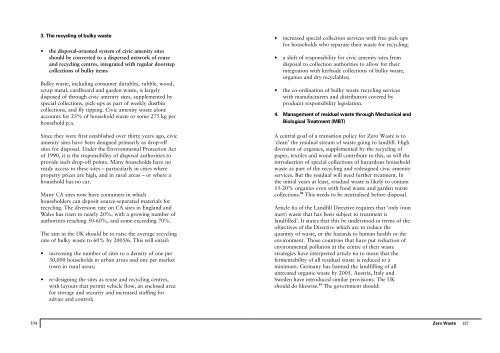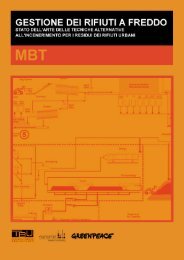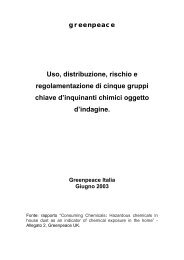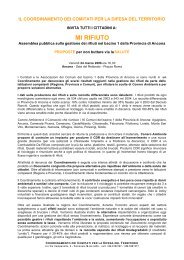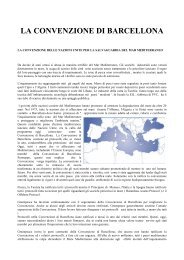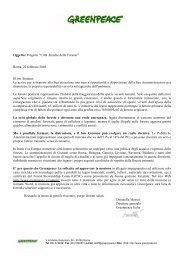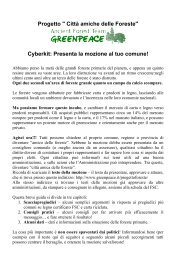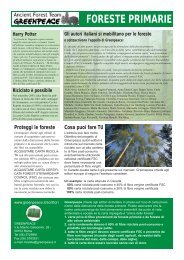Zero Waste by Robin Murray, Greenpeace Environmental Trust 2002
Zero Waste by Robin Murray, Greenpeace Environmental Trust 2002
Zero Waste by Robin Murray, Greenpeace Environmental Trust 2002
Create successful ePaper yourself
Turn your PDF publications into a flip-book with our unique Google optimized e-Paper software.
3. The recycling of bulky waste<br />
• the disposal-oriented system of civic amenity sites<br />
should be converted to a dispersed network of reuse<br />
and recycling centres, integrated with regular doorstep<br />
collections of bulky items<br />
Bulky waste, including consumer durables, rubble, wood,<br />
scrap metal, cardboard and garden waste, is largely<br />
disposed of through civic amenity sites, supplemented <strong>by</strong><br />
special collections, pick-ups as part of weekly dustbin<br />
collections, and fly tipping. Civic amenity waste alone<br />
accounts for 23% of household waste or some 275 kg per<br />
household p.a.<br />
Since they were first established over thirty years ago, civic<br />
amenity sites have been designed primarily as drop-off<br />
sites for disposal. Under the <strong>Environmental</strong> Protection Act<br />
of 1990, it is the responsibility of disposal authorities to<br />
provide such drop-off points. Many households have no<br />
ready access to these sites – particularly in cities where<br />
property prices are high, and in rural areas – or where a<br />
household has no car.<br />
Many CA sites now have containers in which<br />
householders can deposit source-separated materials for<br />
recycling. The diversion rate on CA sites in England and<br />
Wales has risen to nearly 20%, with a growing number of<br />
authorities reaching 50-60%, and some exceeding 70%.<br />
The aim in the UK should be to raise the average recycling<br />
rate of bulky waste to 60% <strong>by</strong> 2005/6. This will entail:<br />
• increasing the number of sites to a density of one per<br />
30,000 households in urban areas and one per market<br />
town in rural areas;<br />
• re-designing the sites as reuse and recycling centres,<br />
with layouts that permit vehicle flow, an enclosed area<br />
for storage and security and increased staffing for<br />
advice and control;<br />
• increased special collection services with free pick-ups<br />
for households who separate their waste for recycling;<br />
• a shift of responsibility for civic amenity sites from<br />
disposal to collection authorities to allow for their<br />
integration with kerbside collections of bulky waste,<br />
organics and dry recyclables;<br />
• the co-ordination of bulky waste recycling services<br />
with manufacturers and distributors covered <strong>by</strong><br />
producer responsibility legislation.<br />
4. Management of residual waste through Mechanical and<br />
Biological Treatment (MBT)<br />
A central goal of a transition policy for <strong>Zero</strong> <strong>Waste</strong> is to<br />
‘clean’ the residual stream of waste going to landfill. High<br />
diversion of organics, supplemented <strong>by</strong> the recycling of<br />
paper, textiles and wood will contribute to this, as will the<br />
introduction of special collections of hazardous household<br />
waste as part of the recycling and redesigned civic amenity<br />
services. But the residual will need further treatment. In<br />
the initial years at least, residual waste is likely to contain<br />
15-20% organics even with food waste and garden waste<br />
collections. 90 This needs to be neutralised before disposal.<br />
Article 6a of the Landfill Directive requires that ‘only (non<br />
inert) waste that has been subject to treatment is<br />
landfilled’. It states that this be understood in terms of the<br />
objectives of the Directive which are to reduce the<br />
quantity of waste, or the hazards to human health or the<br />
environment. Those countries that have put reduction of<br />
environmental pollution at the centre of their waste<br />
strategies have interpreted article 6a to mean that the<br />
fermentability of all residual waste is reduced to a<br />
minimum. Germany has banned the landfilling of all<br />
untreated organic waste <strong>by</strong> 2005. Austria, Italy and<br />
Sweden have introduced similar provisions. The UK<br />
should do likewise. 91 The government should:<br />
134<br />
<strong>Zero</strong> <strong>Waste</strong><br />
137


